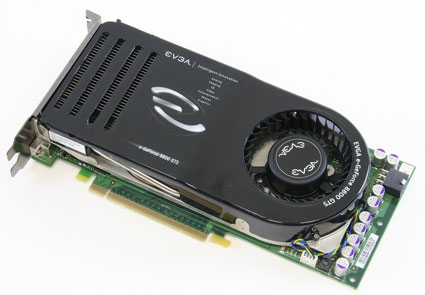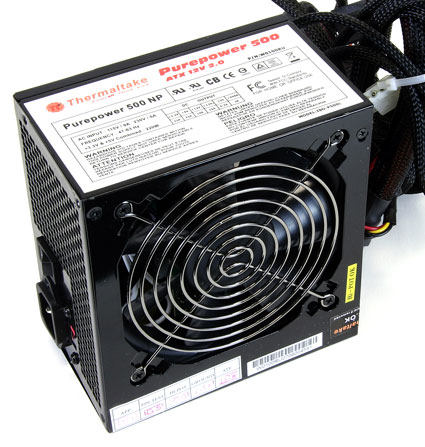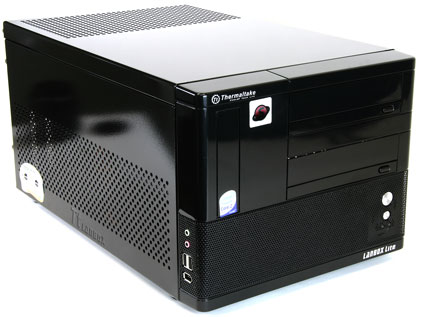Solaris Computer Systems PCs: A New OEM Emerges
The Photon XLX, Continued
As for the graphics card, Solaris has included the budget warrior GeForce 8800 GTS 640 MB. Like the E6750, this is a great choice for high-performance and relatively low-cost, and the only negative thing we can say about the 8800 GTS 640 MB is that the brand-new (and cheaper) GeForce 8800 GT will beat the 8800 GTS more often than not. In Solaris' defense, we were sent the Photon XLX system before the 8800 GT was even released.
As for everything else, the power is supplied by a Thermaltake Purepower500 watt PSU, and the case is a Thermaltake VF6000BNS Lanbox Lite, which is a unique and well-ventilated little case.
For comparison purposes, we'll be pitting the Photon LX against the low-cost system we put together for our system builder marathon (System Builder Marathon). Our system was eerily similar, with an E6750 CPU and GeForce 8800 GTS (albeit of the 320 MB variety - this might hurt the budget system in the gaming benchmarks). Two months ago, our budget marathon system cost us $990 to put together with no operating system; add an OEM version of Windows XP PRO to that for $140, and the total becomes $1130, which is within a stone's throw of the Photon XLX.
Yes, prices have come down a little since our last marathon, and our budget overclock build did include some noticeable upgrades over the Photon XLX: most notably the Cooler Master HyperTX 2 CPU cooler (vs. the Photon's stock cooler) and 320 GB hard disk (vs. the Photon's 250 GB model). But considering that Solaris does the system build and set-up for you, and comes with a stronger video card, I have to admit that I'm impressed with Solaris' pricing. Let's see if their next-tier machine will offer the same value for the dollar.
Get Tom's Hardware's best news and in-depth reviews, straight to your inbox.
Don Woligroski was a former senior hardware editor for Tom's Hardware. He has covered a wide range of PC hardware topics, including CPUs, GPUs, system building, and emerging technologies.


